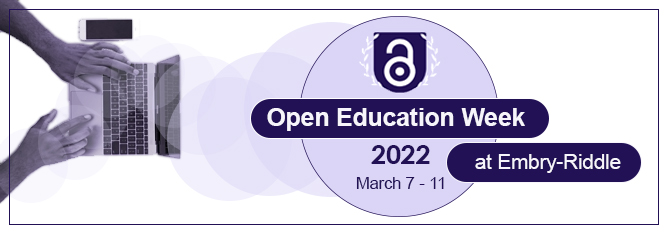
2022 Champion: Pembridge, James "Jay"
Biography
Dr. James Pembridge is an Associate Professor in the Engineering Fundamentals department. He teaches an introduction to programming, graphical communications, and engineering design, while emphasizing projects tied to local community partners. He also teaches a graduate research course that supports Engineering Master’s students in the development of their thesis. Dr. Pembridge's research focuses on the use of evidence-based teaching in STEM and mentoring for project-based courses.
Campus
Daytona Beach
Position
Professor, College of Engineering
Courses Impacted
The engineering fundamentals department has a long-standing culture of using affordable textbooks. The three primary courses in the Engineering Fundamentals department (EGR 101, EGR 120, EGR 115) have all removed textbook requirements and supplemented them with other resources created by faculty in the department.
When did you start using OER?
Engineering Fundamentals’ implementation of OER probably began with EGR 115. This course moved away from textbooks several years ago during a move to hybrid course delivery. That course has continued with video resources even after it resumed a more traditional course schedule. Caroline Liron, Matthew Kindy, Lulu Sun, and Kelsey Rodgers have all had a hand in developing the video resources for that course. When I taught EGR 115, it was a straightforward adoption of those resources. For EGR 101, Lisa Davids and several other faculty in the College of Engineering created a low-cost textbook for EGR 101 students that is very specific to ERAU and ERAU projects. When the OER initiative came about, I encourage Lisa to make the textbook available for free on ERAU's OER website. Within one semester it was available and now students have access to the text for free. Until recently, EGR 120 traditionally had two textbooks. Over the years I noticed that students were only using the text for assignments and weren't really reading it. I began to phase out the use of the text and supplement it with free resources. I led the creation of interactive Canvas modules that serve as core lessons that have replaced one text. In response to COVID, all EGR 120 instructors made videos to supplement the other text and we adapted those videos and previous interactive lessons into an iLEARN framework developed by Sarah Grigg.
Why did you adopt OER?
My primary reason for adopting affordable textbooks, specific to EGR 120, is associated with utility and accessibility to the students and the culture in my department. In general, I saw that students were not reading the text. I wanted them to come to class ready to engage so that I could use more active learning techniques, but the reading was not getting done and I was spending more time than I wanted to lecture. Creating the online interactive lectures allowed me to get them the core information so that we could apply and get more depth in class. The texts we used cost around $150. By removing those expenses, we created more accessibility to the course content. By moving that content digitally, we began to engage the student in more contemporary ways that aligned with their mode of communication and access to information. Finally, the culture of my department not only supported this move but actively encouraged it.
Why are affordable textbooks and/or OER important?
With the ever-increasing expenses of college education (tuition, housing, food), it is responsible to give students the resources they need to learn and succeed in a way that is useful and accessible to them.
Estimated Savings
$67,000

2022 Champion: Pembridge, James "Jay"

Hunt Library
Hazy Library